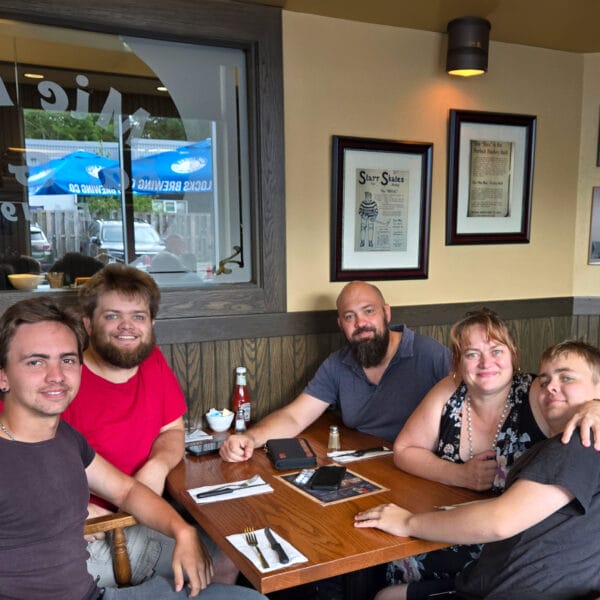Arezo Khaleqi: Striving for a Better World
An ISANS Impact Story
In Afghanistan, Arezo Khaleqi worked to protect women and children under Taliban rule. Now, in Canada, she is working hard to create a future where she can continue to uphold and advocate for human rights.
Before the Taliban took over Afghanistan on August 15, 2021, the then 23-year-old was living what she describes as an amazing life: “I was just pursuing my goals, which included working as a legal assistant, volunteering for human rights groups, pursuing the opportunity to get a master’s degree in the United States, and taking on part-time interpreting work to help me save money for my Test of English as a Foreign Language (TOEFL) exam.”
However, everything changed after the Taliban took control.
“I just lost track of ‘where I am, what is happening,’ says Arezo. “I was hiding with my family since the Taliban was targeting everyone who worked in the defence community. Life was suspended for women. We lost all our fundamental rights, including employment and education.”
With her background in legal and human rights work and the devastating impact of the Taliban rule, Arezo sought to help and protect all the women in her community that she could. She educated herself about the challenges faced by the women in her village, and in trying to find solutions, she further taught herself about Afghanistan’s laws, as well as international human rights and gender-based violence law.
“I started each day thinking why and how this could be happening to us,” she says. Yet her activism was taking a toll on her mental health. If she was unable to persuade a girl’s family to allow her to enroll in college or marry whomever she desired, Arezo became depressed.
“It made me feel 90 years old. I no longer enjoyed attending weddings and celebrations; instead, all I could think was, ‘Anisa should go back to her university; 25-year-old Gul should not have to be forcefully married to a 70-year-old man.’”
But she persisted, living her motto that “if a woman can’t help a woman, she can’t help herself either.” She felt her work was just part of her human responsibilities, not something she was doing as a favour. Arezo immigrated to Canada on September 20, 2023, and in a way, she feels her new start is the result of the good she’s done for others coming back to her.
When she arrived in Halifax, Arezo became an ISANS client, and since then, she has taken advantage of many ISANS services and programs like the Visible Minority Newcomer Women at Work (VMNWW) program, which offers support and help for immigrant women looking to work in Nova Scotia.
“I’ve had the good fortune to get to know the entire ISANS team, from A to Z. They were helpful to me at every step, and I’m glad I got to know them,” says Arezo.
One person Arezo especially got to know was Ksenia Lazoukova, ISANS’ Visible Minority Newcomer Women Facilitator. Ksenia worked closely with Arezo throughout the VMNWW program.
“I had the opportunity to witness her journey, from her initial steps in our workshop to her successful employment as a legal assistant with Nova Scotia Legal Aid,” says Ksenia. “Arezo’s commitment to her professional development and determination were evident throughout our program.”
Another service Arezo took advantage of was ISANS’ practice interviews, which helped her land her job as a legal assistant at Nova Scotia Legal Aid. “Nova Scotia Legal Aid has the most excellent environment for professional and personal development,” she tells us. “I consider myself extremely fortunate to have joined such a friendly and professional team.”
In the future, Arezo hopes to attend law school, do her master’s in international human rights, and become a human rights activist with the United Nations.
“Arezo is an exceptional and gifted young lady, determined to excel in the legal field,” says Ksenia. “Her work as a human rights advocate and her dedication to bringing legal rights awareness to equity-deserving and vulnerable populations is admirable. From all of us at ISANS, we wish Arezo continued success.”
Story published March, 2024.
“If a woman can’t help a woman, she can’t help herself either.”
Share this:


